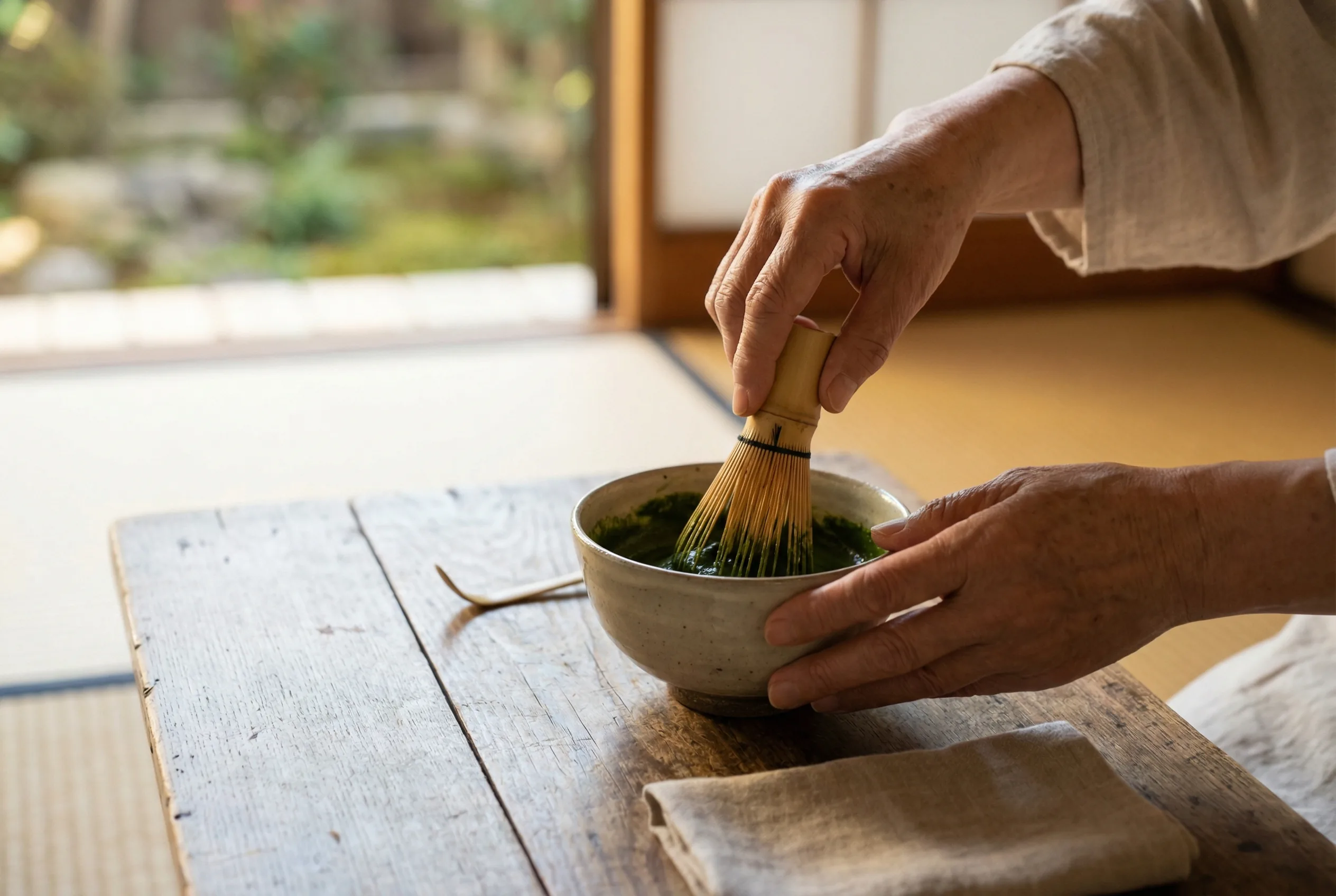Koicha matcha refers to matcha powder specifically designated or suitable for preparing koicha (thick tea), the formal style of matcha used in traditional Japanese tea ceremonies.

What Makes It Different
Quality Requirements
- Must be highest ceremonial grade - only premium matcha works for koicha
- Vibrant color - bright, jade green
- Exceptionally smooth - no bitterness or astringency
- Sweet and umami-rich - natural sweetness is essential
- Ultra-fine texture - produces smooth, paste-like consistency
Why Quality Matters
Koicha uses double the amount of matcha as usucha (thin tea) with less water, creating an intensely concentrated beverage. This concentration amplifies both positive qualities and any defects, making only the finest matcha suitable.
Characteristics
- Often sourced from specific cultivars known for sweetness
- First flush harvest only
- Higher price point than regular ceremonial matcha
- May be labeled specifically for koicha preparation
- Typically from prestigious regions (Uji, Nishio)
Usage Ratio
- Koicha: ~4 grams of matcha per 40-50ml water
- Usucha: ~2 grams of matcha per 70-80ml water
The thick, syrupy consistency of koicha requires matcha that remains smooth and pleasant even at this high concentration.
Not All Ceremonial Matcha Is Koicha-Grade
While all koicha-grade matcha is ceremonial grade, not all ceremonial matcha is refined enough for koicha preparation. Some ceremonial matcha is better suited for usucha, where the lighter dilution is more forgiving.
Preparation Style
Koicha is kneaded slowly with a bamboo whisk (chasen) rather than whisked vigorously, creating a thick paste without foam. The preparation requires skill and the finest matcha available.
Cultural Significance
In formal tea ceremonies, koicha represents the highest expression of the tea master's art and is served to honored guests. The quality of matcha used for koicha reflects the respect shown to participants.
Selection
Look for matcha specifically labeled as:
- "Koicha grade"
- "Premium ceremonial"
- From renowned tea masters or historic tea houses
- Single-origin from famous tea regions
- With detailed provenance information